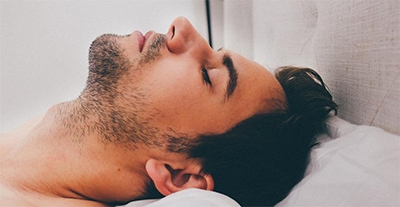Sleep
Between 7 and 9 hours a night
| Download this episode | Sleep. It’s an important part of our daily routine, considering that we spend roughly one third of our time doing it. Infants may sleep as much as 18 hours a day, which can help boost their growth and development, while children and adolescents should get around nine and a half hours per night. The average adult needs between seven and nine hours of sleep a night, but after age 60, nighttime sleep tends to be shorter and interrupted by multiple awakenings. Elderly people are also more likely to take medications that interfere with sleep. Today, people are getting less sleep than they need due to longer work hours and the availability of round-the-clock entertainment and other activities. And despite what many believe, sleeping in on the weekend in order to catch up on sleep you missed during the week is not possible as research has shown that a person would actually need four days of adequate rest to make up for even one hour of sleep debt. | Light has a great deal of impact on how much sleep you get, directly and indirectly. Too much light makes it difficult to sleep and it can also influence your internal clock, thereby affecting your preferred time of sleep. Light influences your internal clock through specialized “light sensitive” cells in the retina of your eyes. These cells, which occupy the same space as the rods and cones that make vision possible, tell the brain whether it is daytime or nighttime, and your sleep patterns are set accordingly. The invention of the electric lightbulb in the late 19th century exposed humans to more light and affected our patterns of sleep. Exposure to light in the late evening tends to delay the phase of your internal clock and lead you to prefer later sleep times. Exposure to light in the middle of the night can have more unpredictable effects, but it can certainly be enough to cause your internal clock to be reset, and may make it difficult to return to sleep. | Where you sleep can have an effect on how you sleep. That’s to say, the environment of your bedroom matters when it comes to how much sleep you get. Factors such as noise and temperature need to be in tune to provide you with the optimal sleep environment. While background sounds may relax some people, the volume level must be low. Otherwise, increased frequency of awakenings may prevent transitions to the deeper stages of sleep. Research has shown that the ideal temperature range for sleeping varies widely among individuals, so much so that there is no prescribed best room temperature to produce positive sleep patterns. People simply sleep best at the temperature that feels most comfortable. It is important to recognize that the preferences of a spouse or bedmate may have a significant effect on sleep, especially when a partner’s sleep and wake times vary, or if he or she snores or suffers from sleep-disordered breathing. | Each season brings new allergens, from tree and grass pollen in spring and summer to autumn ragweed and even higher indoor exposure to dust mites in the winter. And if the stuffy nose, itchy eyes and sinus irritation wasn’t enough to keep you up at night, antihistamines can also affect your sleep pattern. Though antihistamines tend to cause initial drowsiness, they may actually impair overall sleep quality and make sleep disorders like sleepwalking more likely. During the winter, we also see spikes in colds and flus, the side effects of which can also make sleep uncomfortable. Elevated body temperatures, increased snoring, and coughing can make sleep more restless. Cough syrups with alcohol can also impair deep sleep cycles. In cold climates where indoor heating is on often, a humidifier on low can be a helpful addition to your bedroom since dry indoor air can bother sinuses and make you more susceptible to germs. | While getting a good night’s sleep is no guarantee of good health, it does help to maintain many vital functions. One of the most important of these functions may be to provide cells and tissues with the opportunity to recover from the wear and tear of daily life. Major restorative functions in the body such as tissue repair, muscle growth, and protein synthesis occur almost exclusively during sleep. Research involving sleep deprivation has shown that insufficient sleep may cause health problems by altering levels of the hormones involved in such processes as metabolism, appetite regulation, and stress response. Studies such as these may one day lead to a better understanding of how insufficient sleep increases disease risk. In the meantime, sleep experts say there is ample evidence that shows that when people get the sleep they need, they will not only feel better but that it also increases their odds of living healthier, more productive lives.
Transcript
Too much light
Transcript
Where you sleep matters
Transcript
Allergies and antihistamines
Transcript
Good sleep health
Transcript
